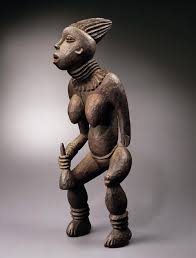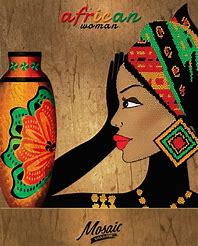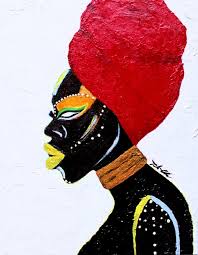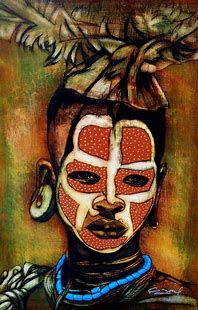The Traders are Kidnapping Our People-4-King Leopold's Ghost













The Traders are Kidnapping Our People-4-King Leopold's Ghost
Several dozen of the letters survive, above his signatue, with its own regal flourish of double underlinings. Their tone is the formal one of monarch to monarch, usually beginning " Most high and powerful prince and king my brother..."But we can hear not just a king speaking. "But we can hear not just a king speakingLater the same year.....; we hear a human being, one who is aghast to see his people taken away in even greater numbers on slave ships. Alfonso was no abolitionist. Like most African rulers of his time and latter, he owned slaves, and at least once he sent some as a present to his "brother" king in Lisbon, along with leopard skins, parrots, and copper anklets. But this traditional exchange of gifts among kings seemed greatly different to Affonso from having tens of thousands of his previously free subjects taken across the sea in chains.
Listen to him as he writes King Joao 111 of Portugal in 1526. Each day the traders are kidnapping our people-- children of this country, sons of our nobles and vassals, even people of our own family... This corruption and depravity are so wide spread that our land is entirely depopulated... We need in this kingdom only priests and schoolteachers, and no merchandise, unless it is wine and flour and Mass... It is our wish that this kingdom not be the place fro the trade and transport of slaves.
Later the same year:Later the same year:Many of our subjects eagerly lust after Portuguese merchandise that your subjects have brought into our domains. To satisfy this inordinate appetite , they seize many of our black subjects,,,They sell them... after having taken these prisoners [to the coast] secretly or at night...As soon as the captives are in the hands of white men they are branded with a hot-iron. Again and again Affonso speaks about the twin themes of the slave trade and the alluring array of cloth, tools, jewelry, and other knick knacks that the Portuguese traders used to buy their human cargoes.These goods exert such a great attraction over simple and ignorant people that they believe in them and forget their belief in God....
My Lord, a monstrous greed pushes our subjects, even Christians, to seize members of their own families, and of ours, to do business by selling them as captives. While begging the Portuguese king to send him teachers, pharmacists and doctors instead of traders, Affonso admits that the flood of material goods threatened his authority. His people "can n ow procure, in much greater quantity than we can, the things we formely used to keep them obedient to us and content." Affonso's lament was prescient; this was not the last time that the lust for Europe's great conucopia of goods undermined traditional ways of life elsewhere. The Portuguese king showed no sympathy, King Joao 111 replied: "You...tell me how vast the Congo is, and how it is so thickly populated that it seems as if no slave has ever left."
Affonso pleaded with his fellow sovereigns as one Christian with another, complete with the prejudices of the day. Of the priests turned slave traders, he wrote:Affonso pleaded with his fellow sovereigns as one Christian with another, complete with the prejudices of the day. Of the priests turned slave-traders, he wrote:In this kingdom, faith is as fragile as a glass because of the bad examples of the men who come to teach here, because the lusts of the world and lure of wealth have turned them away from the truth.
Just as the jews crucified the Son of God because of covetousness, my brother, so today he is again crucified. Several times Affonso sent his appeals for an end to the slave trade directly to the Pope in Rome, but the Portuguese detained his emissaries to the Vatican as they stepped off the boat in Lisbon.Affonso's despair reached its depths in 1539, near the end of his life, when he heard that ten of his young nephews, grandsons and other relatives who had been sent to Portugal for a religious education had disappeared en route.
" We don't know whether they are dead or alive," he wrote in desperation, " nor how they might have died, nor what news we can give of them to their fathers and mothers." We can imagine the king's horror at being unable to guarantee the safety even ogf his own family. Portuguese traders and sea captains along the long route back to Europe sidetracked many a cargo between the Kongo kingdom and Lisbon; these youngsters, it turned out, ended up in Brazil as slaves.
His hatred for the overseas slave trade and his vigilance against its erosion of his authority won Affonso the enmity of some of the Portuguese merchamts living in his capital. A group og eight made an attempt on his life as he was attending Mass on Easter Sunday in 1540. He escaped with only a bullet hole in the fringe of his royal robe, but one of his nobles was killed and two others wounded.His hatred for the overseasslave trade and his vigilance against its erosion of his authority won Affonso the enmity of some of the Portuguese merchants living in his capital. A group of eight made an attempt on his life as he was attending Mass on Easter Sunday in 1540. He escaped with only a bullet hole in the fringe of his royal robe, but one of his nobles was killed and two others wounded.
After Affonso's death, the power of the Kongo state gradually diminished as provincial and village chiefs, themselves growing rich on slave sales, no longer gavae much allegiance to the court of Mbanza kongo. By thye end of the 1500s, other European countries had joined in the slave trade; British, French, and Dutch vessels roamed the African coast, looking for human cargo. In 1665, the army of the weakened kingdom of the Kongo fought a battle with the Portuguese. It was deafeated, and the ManiKongo was beheaded. Internal strife further depleted the kingdom. whose territory was all taken over by European colonies by the late 1800s.
Except for Affonso's letters, the written record of these times shows them entirely through white men's eyes. How did the Europeans, beginning with Diogo Cao and his three ships with faded red crosses on their sails, appear to the people living at the great river's mouth? To see with their eyes, we must turn to the myths and legends that have filtered down over the centuries.
At first, Africans apparently saw the white sailors not as men but as vumbi-ancestral ghosts-since the Kongo people believed that a person's skin changed to the colour of chalk, when he passed into the land of the dead. And it was obvious that this was where these menacing white vumbi had come from, for people on the shore saw first the tips of an approaching ship's masts, then its super structure, then its hull. Clearly the ship had carried its passangers up from their homes beneath the surface of the earth. Here is how the Portuguese arrival was recounted by Mukunzo Kioko, a twentieth-century oral historian of the Pende people:
Reference: Adam Hochschild
What are the signs of dyspraxia and do you have it?














What are the signs of dyspraxia and do you have it?
Dyspraxia is a condition that affects movement and co-ordination, it is also known as developmental co-ordination disorder (DCD).
Those who have dyspraxia can find certain tasks that use co-ordination skills challenging, such as playing sports or learning to drive a car.
It does not affect someone’s intelligence but can also affect their fine motor skills — this can include writing or using small objects.
There is no exact reason why people get dyspraxia “but it is thought to be caused by a disruption in the way messages from the brain are transmitted to the body.
“This affects a person’s ability to perform movements in a smooth, coordinated way, as explained on the Dyspraxia Foundation website.
Sometimes if a child is born prematurely they may be at higher risk of developing dyspraxia.
Studies have also shown that dyspraxia is more common in men than women and can often run in the family.
© Getty Images/PhotoAlto Man holding head
Signs you have dyspraxia
Some of the signs of dyspraxia are explained on the NHS website. The effects can vary between individuals and will change over time.
If someone has dyspraxia it could cause:
- Co-ordination, balance, and movement issues
- Issues with learning new skills — including remembering information
- Challenges with daily living skills, such as dressing or preparing meals
- Difficulty writing or using a keyboard, drawing or grasping small objects
- Issues in social situations — social awkwardness or lack of confidence
- Difficulty dealing with emotions
- Poor time management, planning and personal organisation skills
Many people with dyspraxia can also struggle with memory, perception, and processing situations.
Treatment for Dyspraxia
There is no treatment for dyspraxia but therapy is often used to help people deal with their condition through day-to-day life.
Occupational therapy is used to help find ways the individual can remain independent and participate in everyday tasks such as cooking or writing.
Talking therapy called cognitive behavioural therapy (CBT) is also used to help people manage their difficulties by changing their way of thinking and behaving.
The NHS website states that it can also help people with dyspraxia if they:
- Stay fit and healthy, regular exercise can help co-ordination
- Using a laptop or computer if writing becomes difficult
- Using a calendar, diary or app to help organisation
- Learning how to talk positively about challenges and how they’re overcome
- Securing support from programs such as Access to Work
It is not uncommon for people to suffer from other conditions alongside dyspraxia such as ADH, autism spectrum disorder, childhood apraxia of speech, dyscalculia, and dyslexia.
Anyone with symptoms of dyspraxia can speak to a medical professional who will be able to diagnose the condition.
They will perform observation and standardised tests that measure movement, hand-eye coordination, and sensory perception.
They will also look at medical history and is carried out by specially trained occupational therapists.
Reference: Mirror: Amy Jones
Sir Anthony Hopkins 'doesn't believe in' Asperger's diagnosis













Sir Anthony Hopkins 'doesn't believe in' Asperger's diagnosis
Sir Anthony Hopkins "doesn't believe in" his Asperger's diagnosis.
The 83-year-old actor was recently told he has the developmental disorder - which is a form of autism - but he doesn't "feel any different" and finds it frustrating that people are so quick to add labels to humans and their behaviour these days.
He told the new issue of GQ magazine: "I think some doctor contacted me... I don’t know. I don’t, actually, I don’t believe in it. I don’t feel any different. I think these are dressed up. Maybe I’m wrong. Maybe I’m ignorant.
"They call it neurodiversity. It’s a fancy label. I’m very focused in one way. I notice when I’m in restaurants, but that’s my behaviour.
"I think we’ve ruined the human system by tabulating everything.
© Bang Showbiz Sir Anthony Hopkins covers GQ
"There’s a wonderful saying, which is that we’re all screwed. We always have been and we always will be. The whole human race is screwed.
"Otherwise, we wouldn’t have had bloodshed and wars, century after century, if we are so smart.
"We have a wonderful brain but we’ve destroyed half the planet, so we’re not that smart. It’s funny how a little invisible virus has zapped us, so figure that out."
After decades of success, the 'Father' star - who was honoured with the Legend accolade at the GQ Men of the Year awards earlier this week - admitted he still needs to keep his ego in check.
He said: “Narcissism is the biggest enemy of all, I think, for an actor and it's something you have to check all the time. Narcissism, too much ego, you have to watch it. And that's fun as well, to watch the old ego.
"When people start saying good things about you – great actor and all that stuff – of course. When you start believing that, well, that's OK, there's nothing wrong in believing in yourself and self-worth, but you have to check it every so often.
"You're just a human being that happens to be an actor in a public sort of job, [you're] no different from anyone else.
"And what I am very conscious of, and I don't mean it in a self-conscious ‘Ah, shucks’ way, is realising every day that I'm not making the movie. The camera guy, the sound engineer, lighting, DP, the props, the make-up people, the producers, director, they're making the film. The guys there at four in the morning unloading the trucks are making the movie. I'm not.”
Reference: Bang Showbiz
WHO monitoring new coronavirus variant named Mu













WHO monitoring new coronavirus variant named Mu
A new coronavirus variant, first discovered by the World Health Organisation in January 2021, has been designated a variant of interest.
The variant, B.1.621 - or Mu - is the fifth Covid variant of interest.
It was first identified in Colombia at the start of the year but cases have since been recorded in other parts of South America and across Europe.
In July 2021, Public Health England (PHE) declared the Mu variant a variant under investigation. At the time, the Mu variant had accounted for 16 cases, all related to overseas travel.
In July, PHE said there was no evidence to suggest it made the vaccines less effective or causes more severe illness, but the WHO said today in its weekly bulletin that it could be more resistant to vaccines, but that more studies would be needed to examine this further.
t said: “Since its first identification in Colombia in January 2021, there have been a few sporadic reports of cases of the Mu variant and some larger outbreaks have been reported from other countries in South America and in Europe.
“Although the global prevalence of the Mu variant among sequenced cases has declined and is currently below 0.1 per cent, the prevalence in Colombia (39 per cent) and Ecuador (13 per cent) has consistently increased.
© AFP via Getty Images: The variant, B.1.621 - or Mu - is the fifth Covid variant of interest
“The epidemiology of the Mu variant in South America, particularly with the co-circulation of the Delta variant, will be monitored for changes.”
There are currently four coronavirus variants of concern, as deemed by the WHO, with the Alpha variant - first recorded in Kent - seen in 193 countries, Beta in 141, Gamma in 91 and Delta in 170 countries, while Mu is the fifth variant of interest.
Last week, a new study suggested that people who contracted the Delta variant, first discovered in India, were more than twice as likely to to require hospital treatment than those infected with the previously dominant Alpha variant, which was discovered in Kent.
The study, by PHE and Cambridge University, looked at more than 43,000 cases confirmed by whole-genome sequencing in England between 29 March and 23 May.
Based on their findings, the researchers warned that outbreaks of the Delta variant in unvaccinated populations might lead to a greater burden on healthcare services than the Alpha variant.
Nearly three-quarters of the infections occurred in people who were unvaccinated, with just 1.8 per cent of those infected having received two doses of a vaccine, according to the study.
Close to one in 50 patients were admitted to hospital within two weeks of their first positive test – or 2.3 per cent of Delta cases and 2.2 per cent of those with the Alpha variant.
Researchers then adjusted these figures to take into account other factors – including age, ethnicity and vaccination status – and determined that the risk of being admitted to hospital more than doubled with the Delta variant.
“This study confirms previous findings that people infected with Delta are significantly more likely to require hospitalisation than those with Alpha, although most cases included in the analysis were unvaccinated,” said Dr Gavin Dabrera, one of the study’s lead authors and a consultant epidemiologist at PHE’s National Infection Service.
“We already know that vaccination offers excellent protection against Delta, and as this variant accounts for over 98 per cent of Covid-19 cases in the UK, it is vital that those who have not received two doses of vaccine do so as soon as possible.
Reference: Independent: Ella Glover
Articles - Most Read
- Home
- LIVER DIS-EASE AND GALL BLADDER DIS-EASE
- Contacts
- African Wholistics - Medicines, Machines and Ignorance
- African Wholistics -The Overlooked Revolution
- African Holistics - Seduced by Ignorance and Research
- The Children of the Sun-3
- Kidney Stones-African Holistic Health
- The Serpent and the RainBow-The Jaguar - 2
- PART ONE: DIS-EASE TREATMENT AND HEALTH-3
- 'Tortured' and shackled pupils freed from Nigerian Islamic school
- King Leopold's Ghost - Introduction
- PART ONE: DIS-EASE TREATMENT AND HEALTH-4
- PART ONE: DIS-EASE TREATMENT AND HEALTH-2
- PART ONE: DIS-EASE TREATMENT AND HEALTH-5
- African Wholistics - Medicine
- Menopause
- The Black Pharaohs Nubian Pharaohs of Ancient Egypt
- The Mystery System
- PART ONE: DIS-EASE TREATMENT AND HEALTH-6
Who's On Line?
We have 104 guests and no members online
Ad Agency Remote
Articles - Latest
- The Male G Spot Is Real—and It's the Secret to an Unbelievable Orgasm
- Herbs for Parasitic Infections
- Vaginal Care - From Pubes to Lubes: 8 Ways to Keep Your Vagina Happy
- 5 Negative Side Effects Of Anal Sex
- Your Herbs and Spices Might Contain Arsenic, Cadmium, and Lead
- Struggling COVID-19 Vaccines From AstraZeneca, BioNTech/Pfizer, Moderna Cut Incidence Of Arterial Thromboses That Cause Heart Attacks, Strokes, British Study Shows
- Cartilage comfort - Natural Solutions
- Stop Overthinking Now: 18 Ways to Control Your Mind Again
- Groundbreaking method profiles gene activity in the living brain
- Top 5 health benefits of quinoa
- Chromolaena odorata - Jackanna Bush
- Quickly Drain You Lymph System Using Theses Simple Techniques to Boost Immunity and Remove Toxins
- Doctors from Nigeria 'facing exploitation' in UK
- Amaranth, callaloo, bayam, chauli
- 9 Impressive Benefits of Horsetail
- Collagen The Age-Defying Secret Of The Stars + Popular Products in 2025
- Sarcopenia With Aging
- How to Travel as a Senior (20 Simple Tips)
- Everything you need to know about mangosteen



